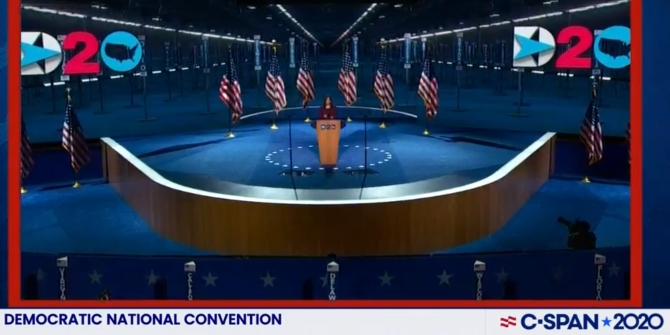 In recent months Russia has amassed more than 100,000 troops on the country’s border with Ukraine, prompting fears of an invasion in the US and among European NATO allies. LSE US Centre Director Professor Peter Trubowitz looks at what Russian President Vladimir Putin wants to gain from the crisis, how President Biden has reacted to it, and what may happen next.
In recent months Russia has amassed more than 100,000 troops on the country’s border with Ukraine, prompting fears of an invasion in the US and among European NATO allies. LSE US Centre Director Professor Peter Trubowitz looks at what Russian President Vladimir Putin wants to gain from the crisis, how President Biden has reacted to it, and what may happen next.
What does Russian President, Vladimir Putin want?
This is a classic Russian move designed to improve its geopolitical position by sowing division in the West and shoring up domestic legitimacy. Soviet leaders played this card often during the Cold War, though with little international success. Vladimir Putin thinks he can do better. Why now? Because the West is in a funk and key Western leaders are in political trouble: President Joe Biden’s approval numbers are lousy; UK Prime Minister Boris Johnson is under water facing a possible “no confidence” vote in the coming days; French President Emmanuel Macron is up for election in April with shaky prospects; and the new German government is internally divided on foreign policy matters, including how to deal with Russia. So, Putin is betting that this is an opportune moment to gain greater influence over Ukraine and its neighbors, stoke divisions within NATO, and weaken America’s position in Europe.
Will Putin get his way?
Much now depends on how Putin responds to the formal response Biden and NATO sent earlier this week to Putin’s demand for security guarantees, including a NATO declaration that Ukraine will never be allowed into the Western alliance and an agreement prohibiting the deployment of nuclear-tipped missiles in Europe that can reach Russian soil. Putin could respond by ratcheting up diplomatic pressure, unleashing cyber-warfare, or worse, using the 130,000 troops now positioned along Ukraine’s border to launch a full-scale military offensive against Kyiv. If he does, then it is likely to backfire by uniting, rather than dividing America and its European allies. It would make it very difficult for Western leaders to back down and indeed, in some cases, politically advantageous to stand tall. This is why this situation is so fraught.
How has Biden performed?
So far, Biden has played a difficult hand well. He has been careful not to box in Putin, or himself. Biden has remained open to negotiating with Putin even while rejecting demands and putting contingency plans (e.g., economic sanctions) in place, in case the situation rapidly deteriorates. Meanwhile, Biden has consulted widely with America’s European allies and thus far has avoided coming off looking too weak or too belligerent. There is some inevitable carping by Republicans, but they are internally divided and as a result, badly out of position at the moment. That said, the ball is back in Putin’s court, and we will have to see how Biden handles the return of the serve.
- This article is based on comments made by Professor Trubowitz in a Bloomberg Surveillance interview [comments begin from 2:06:28] on January 28, 2022
- Featured image credit: The White House, Public domain, via Wikimedia Commons.
Please read our comments policy before commenting
Note: This article gives the views of the author, and not the position of USAPP– American Politics and Policy, nor of the London School of Economics.
Shortened URL for this post: https://bit.ly/3AM8TUT
About the author
 Peter Trubowitz – LSE Phelan US Centre
Peter Trubowitz – LSE Phelan US Centre
Peter Trubowitz is Professor of International Relations, and Director of the LSE’s Phelan US Centre. His main research interests are in the fields of international security and comparative foreign policy, with special focus on American grand strategy and foreign policy. He also writes and comments frequently on US party politics and elections and how they shape and are shaped by America’s changing place in the world.






